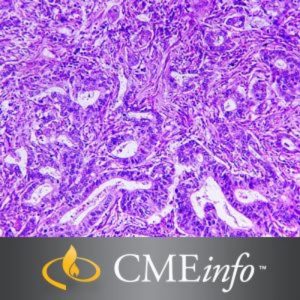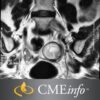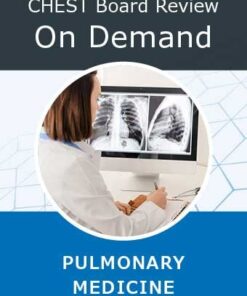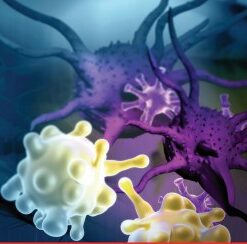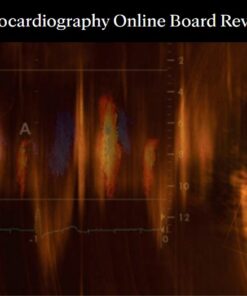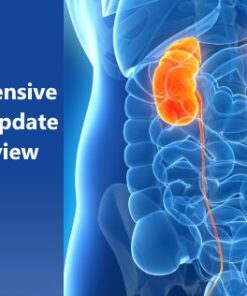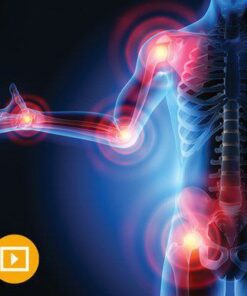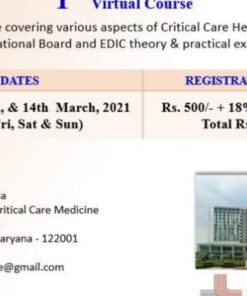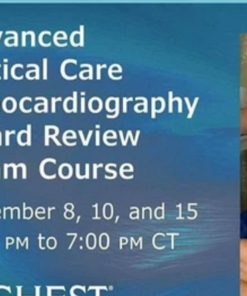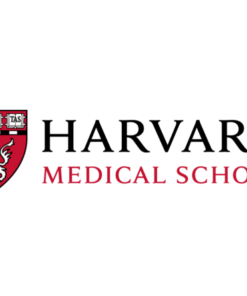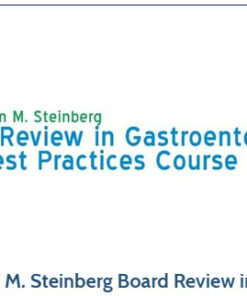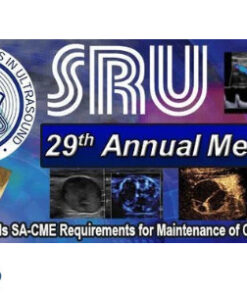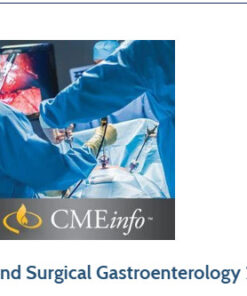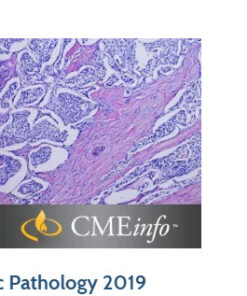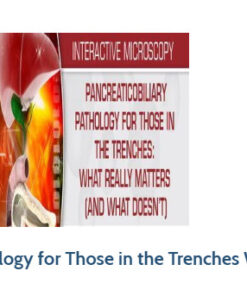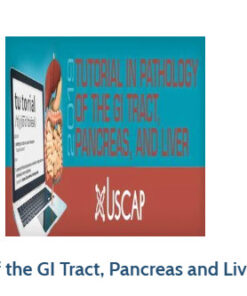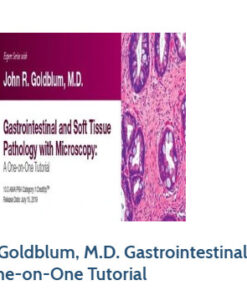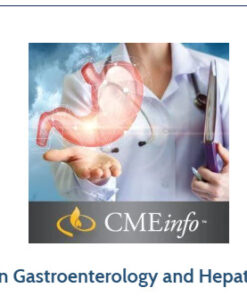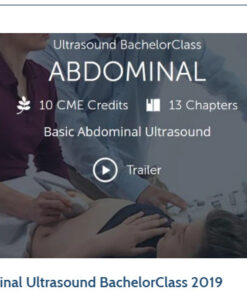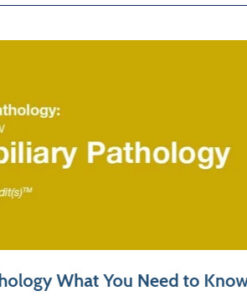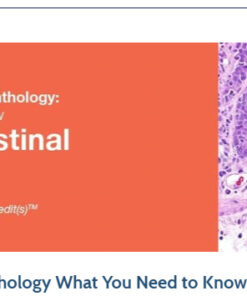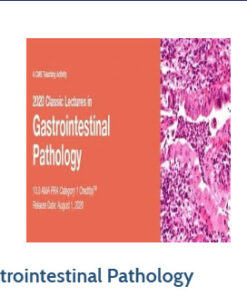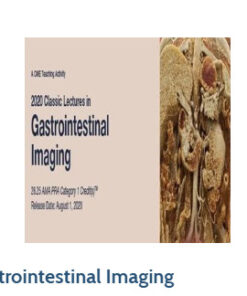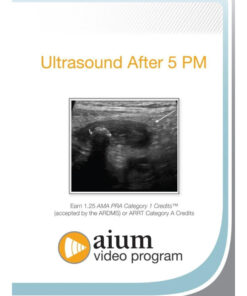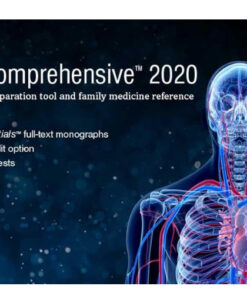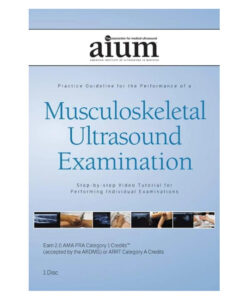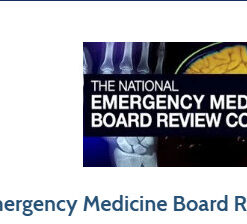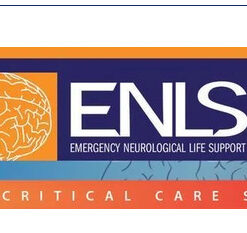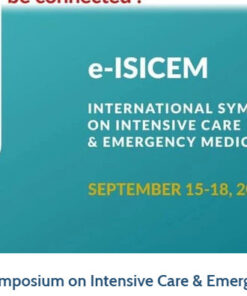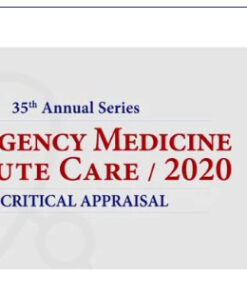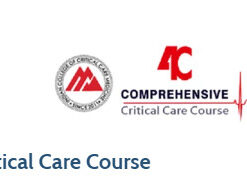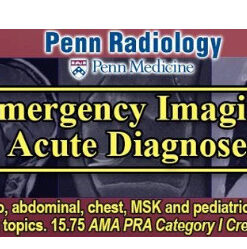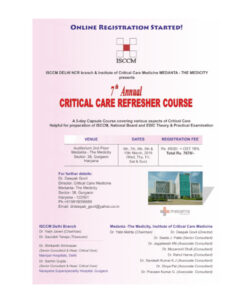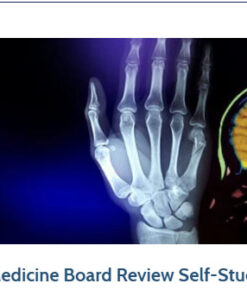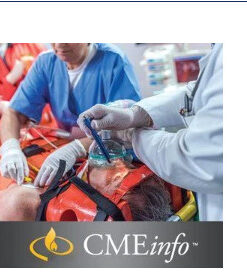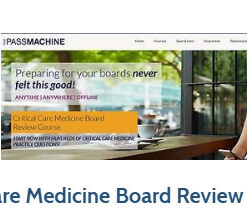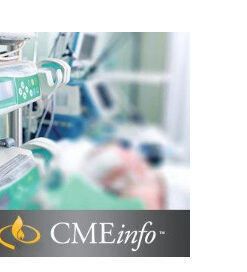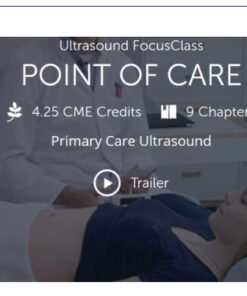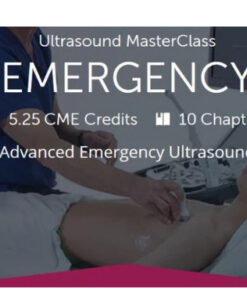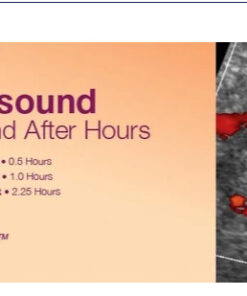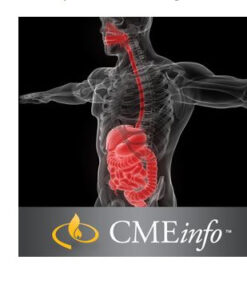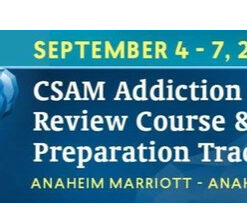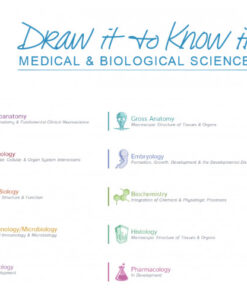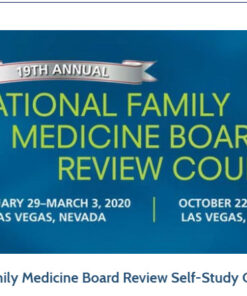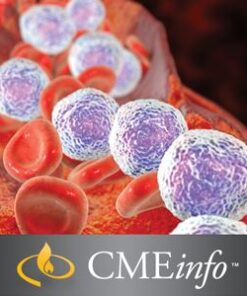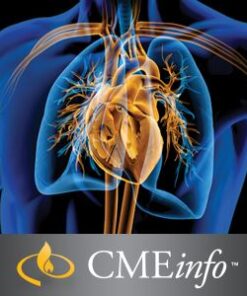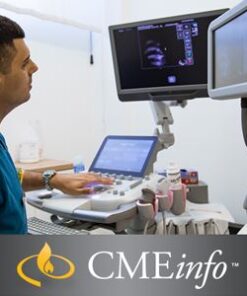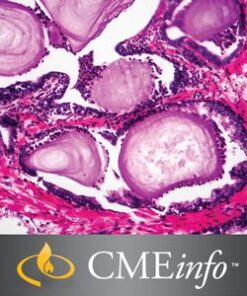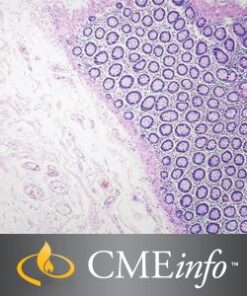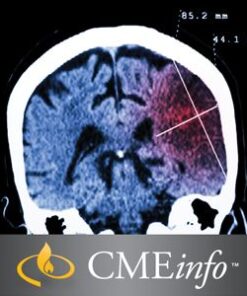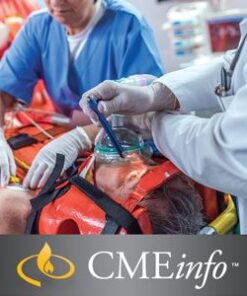- Title: Gastrointestinal Pathology – Masters of Pathology Series
- OakStone Price: $895.00.
- Format: Video Files (MP4 Format) + PDF.
- File Size: 4 GB.
-
Note : We will send ebook download link after confirmation of payment via paypal successPayment methods: Visa or master card (Paypal)
Gastrointestinal Pathology – Masters of Pathology Series (CME Videos)
$40
- Discuss the most recent histopathological classifications of various gastrointestinal polyps and neoplasms currently recognized by the WHO in all areas of the gastrointestinal tract, including mesenchymal tumors.
- Recognize multiple forms of nonneoplastic injury to the gastrointestinal tract, including iatrogenic injury, disorders of malabsorption, inflammatory bowel disease, and infectious conditions including sexually transmitted disease-associated injury to the anorectal area.
- Decide what immunoreactions are most appropriate for validating the diagnosis of the main gastrointestinal tumors.
- Describe the main molecular genetic alterations, which occur in key gastrointestinal tumors, and how that knowledge would help to determine future target therapies.
- Anal Pathology, Nonneoplastic and Key Neoplasms – Elizabeth Montgomery, MD
- Barrett’s Esophagus and Neoplasms of the Esophagus – What’s Hot and What’s Not – Elizabeth Montgomery, MD
- Colorectal Neoplasms 1 – Elizabeth Montgomery, MD
- Colorectal Neoplasms 2 – Elizabeth Montgomery, MD
- Gastric Neoplasms, Including HER2 Testing – Elizabeth Montgomery, MD
- Highlights of Appendix Pathology – Elizabeth Montgomery, MD
- Latrogenic Injury to the Gastrointestinal Tract – Elizabeth Montgomery, MD
- Mesenchymal Tumors of the Gastrointestinal Tract, Part 1 – Elizabeth Montgomery, MD
- Mesenchymal Tumors of the Gastrointestinal Tract, Part 2 – Elizabeth Montgomery, MD
- Nonneoplastic Colorectal Pathology – Elizabeth Montgomery, MD
- Nonneoplastic Esophageal Pathology – Elizabeth Montgomery, MD
- Nonneoplastic Gastric Pathology – The Company the Neoplasms Keep – Elizabeth Montgomery, MD
- Polyposis Syndromes Affecting the Gastrointestinal Tract – Elizabeth Montgomery, MD
- Small Intestinal Neoplasms – Elizabeth Montgomery, MD
- Small Intestinal Nonneoplastic Pathology – Elizabeth Montgomery, MD
- Discuss the most recent histopathological classifications of various gastrointestinal polyps and neoplasms currently recognized by the WHO in all areas of the gastrointestinal tract, including mesenchymal tumors.
- Recognize multiple forms of nonneoplastic injury to the gastrointestinal tract, including iatrogenic injury, disorders of malabsorption, inflammatory bowel disease, and infectious conditions including sexually transmitted disease-associated injury to the anorectal area.
- Decide what immunoreactions are most appropriate for validating the diagnosis of the main gastrointestinal tumors.
- Describe the main molecular genetic alterations, which occur in key gastrointestinal tumors, and how that knowledge would help to determine future target therapies.
Gastrointestinal Pathology – Masters of Pathology Series (CME Videos)
Oakstone Specialty Review
Keep up with major advances in this dynamic sub-specialty with a concise, 15-lecture review. Ideal for MOC.
Stay Current With Major Advances With This Concise Review
Gastrointestinal Pathology – Master of Pathology Series focuses on major changes in the practice of gastrointestinal pathology stemming from the progressive incorporation of immunohistochemical and molecular genetics techniques into the realm of surgical pathology. Led by a renowned Johns Hopkins pathologist, the program will significantly enhance your diagnostic skills in all areas of gastrointestinal pathology. The course is divided into neoplastic and nonneoplastic pathology of the tubular intestinal tract with major emphasis on interpreting biopsies. Fifteen state-of-the-art lectures will advance your knowledge in this rapidly evolving subspecialty.
The course will help you to better:
Topics / Speakers:
Accreditation Statement
Oakstone Publishing, LLC is accredited by the Accreditation Council for Continuing Medical Education to provide continuing medical education for physicians.
Date of Original Release: July 31, 2015
Learning Objectives
After viewing this program, the participant will be better able to:
Product Details
Related Products
CARDIOLOGY BOOKS
CARDIOLOGY BOOKS
Internal Medicine Videos
2022 AANEM Spring Virtual Conference Collection 2022 (CME VIDEOS)
Internal Medicine Videos
The International Congress Of Parkinson and Movement Disorder 2022 (MDS Congress) (CME VIDEOS)
GENERAL PEDIATRICS
Chestnet Pediatric Pulmonary Board Review On Demand 2022 (CME VIDEOS)
INTENSIVE CARE BOOKS
Chestnet Critical Care Board Review On Demand 2022 (CME VIDEOS)
Internal Medicine Books
Internal Medicine Books
The PassMachine Medical Oncology Board Review 2020 (v5.1) (Beattheboards) (Lectures)
Internal Medicine Books
8th Congress of the European Academy of Neurology – Europe 2022 (CME VIDEOS)
Internal Medicine Books
MD Anderson A Comprehensive Board Review in Hematology and Medical Oncology 2021 (CME VIDEOS)
Internal Medicine Videos
CARDIOLOGY BOOKS
Mayo Clinic Echocardiography Online Board Review 2022 (CME VIDEOS)
Internal Medicine Videos
Internal Medicine Books
Internal Medicine Books
The PassMachine Addiction Medicine Board Review 2022 (v3.1) (Beattheboards) (Lectures)
Internal Medicine Videos
Internal Medicine Videos
Internal Medicine Videos
Internal Medicine Videos
The Brigham Board Review and Comprehensive Update in Rheumatology 2022 (CME VIDEOS)
Internal Medicine Videos
Contemporary Issues in Breast Pathology uscap 2022 Items Included in the Purchase of this Course
Internal Medicine Videos
Internal Medicine Videos
Internal Medicine Videos
Internal Medicine Videos
Internal Medicine Videos
CHEST Advanced Critical Care Echocardiography Board Review Exam Course Virtual Event 2020
Internal Medicine Videos
Internal Medicine Videos
Internal Medicine Videos
Internal Medicine Videos
Cleveland Clinic Digestive Disease and Surgery Update OnDemand 2019
Internal Medicine Videos
GI BOARD REVIEW (The William M. Steinberg Board Review in Gastroenterology)
Internal Medicine Videos
Internal Medicine Videos
Johns Hopkins Review of Medical and Surgical Gastroenterology 2018 (Videos+PDFs)
Internal Medicine Videos
Internal Medicine Videos
Internal Medicine Videos
USCAP Tutorial in Pathology of the GI Tract, Pancreas and Liver 2019
Internal Medicine Videos
Internal Medicine Videos
The Brigham Board Review in Gastroenterology and Hepatology 2018
Internal Medicine Videos
Internal Medicine Videos
2019 Classic Lectures in Pathology What You Need to Know Pancreatobiliary Pathology
Internal Medicine Videos
2019 Classic Lectures in Pathology What You Need to Know Gastrointestinal Pathology
Internal Medicine Videos
Internal Medicine Videos
Internal Medicine Videos
Internal Medicine Videos
Internal Medicine Videos
AAFP FAMILY MEDICINE BOARD REVIEW SELF-STUDY PACKAGE – 13TH EDITION 2020
Internal Medicine Videos
Internal Medicine Videos
Internal Medicine Videos
Internal Medicine Videos
Internal Medicine Videos
Internal Medicine Videos
Internal Medicine Videos
Internal Medicine Videos
Internal Medicine Videos
Internal Medicine Videos
2019 Association for Community Health Improvement (ACHI) National Conference
Internal Medicine Videos
A Core Curriculum in Adult Primary Care Medicine 2018-2019 Lecture Series
Internal Medicine Videos
2019 Classic Lectures in Pathology What You Need to Know Endocrine Pathology
Internal Medicine Videos
Introduction to Adult EM Bootcamp + The Practice of Emergency Medicine (Hippo) 2020
Internal Medicine Videos
CCME The National Emergency Medicine Board Review course 2020
Internal Medicine Videos
Internal Medicine Videos
Internal Medicine Videos
Internal Medicine Videos
Internal Medicine Videos
ISICEM International Symposium on Intensive Care & Emergency Medicine 2020
Internal Medicine Videos
CCME Emergency Medicine & Acute Care: A Critical Appraisal Series 2020
Internal Medicine Videos
Internal Medicine Videos
Internal Medicine Videos
Internal Medicine Videos
CCME National Emergency Medicine Board Review Self-Study 2019 (Videos)
Internal Medicine Videos
Internal Medicine Videos
Internal Medicine Videos
The Passmachine Critical Care Medicine Board Review Course 2018
Internal Medicine Videos
Internal Medicine Videos
Internal Medicine Videos
Internal Medicine Videos
Internal Medicine Videos
Internal Medicine Videos
Internal Medicine Videos
Internal Medicine Videos
Internal Medicine Videos
Internal Medicine Videos
Internal Medicine Videos
The National Family Medicine Board Review Self-Study Course 2020
Internal Medicine Videos
The Brigham and Dana-Farber Board Review in Hematology and Oncology 2020 (Videos+PDFs)
Internal Medicine Videos
Internal Medicine Videos
Internal Medicine Videos
Internal Medicine Videos
The Brigham Board Review in Pulmonary Medicine 2020 (Videos+PDFs)
Internal Medicine Videos
Internal Medicine Videos
Internal Medicine Videos
Internal Medicine Videos
Internal Medicine Videos
Internal Medicine Videos
36th Annual UCLA Intensive Course in Geriatric Medicine and Board Review 2020 (Videos+PDFs)
Internal Medicine Videos
Need-to-Know Emergency Medicine: A Review for Physicians in a Hurry 2020 (Videos+PDFs)
Internal Medicine Videos
Internal Medicine Videos

